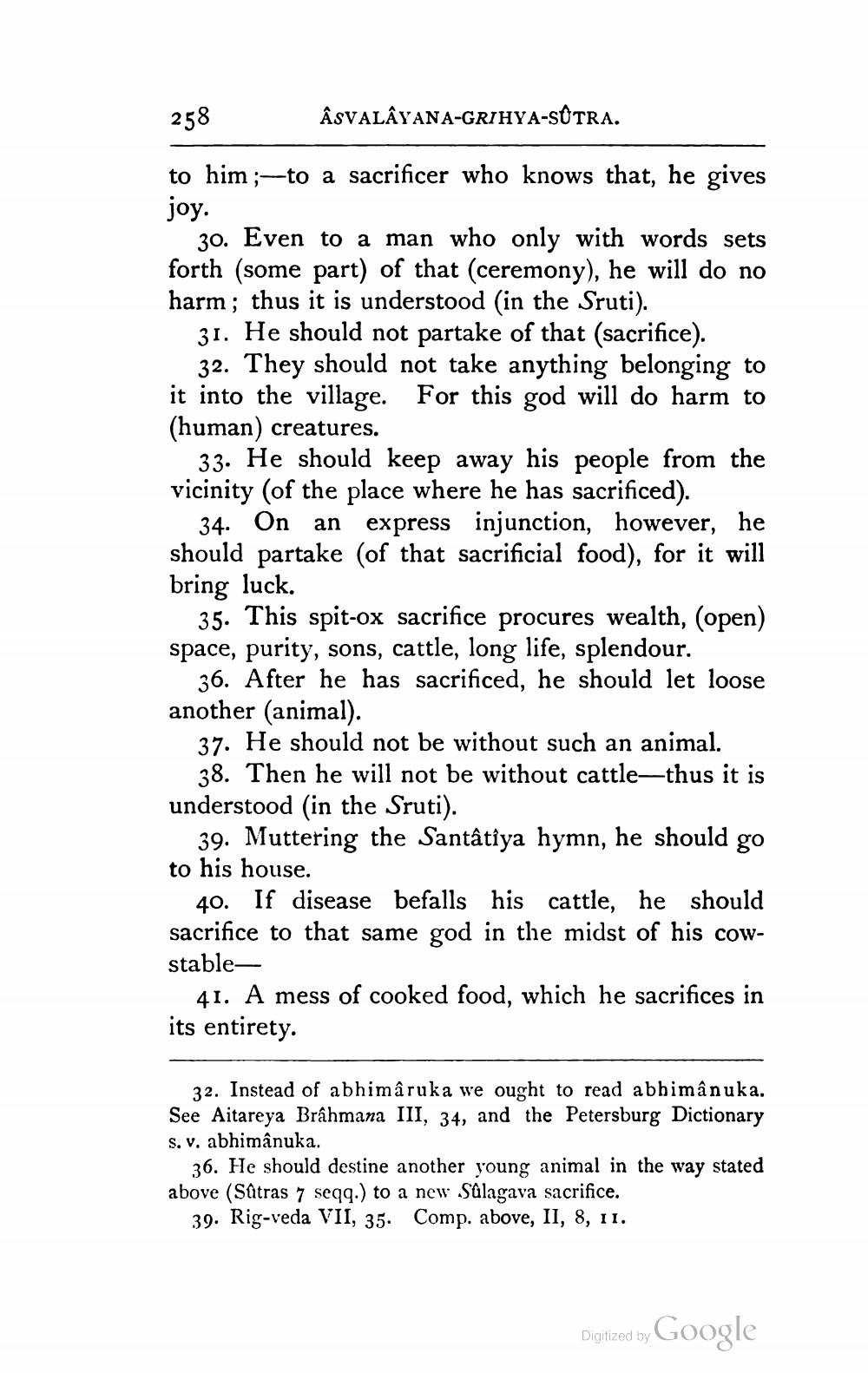________________
258
ÂSVALÂYANA-GRIHYA-SUTRA.
to him; to a sacrificer who knows that, he gives joy.
30. Even to a man who only with words sets forth (some part) of that (ceremony), he will do no harm; thus it is understood (in the Sruti).
31. He should not partake of that (sacrifice).
32. They should not take anything belonging to it into the village. For this god will do harm to (human) creatures.
33. He should keep away his people from the vicinity (of the place where he has sacrificed).
34. On an express injunction, however, he should partake (of that sacrificial food), for it will bring luck.
35. This spit-ox sacrifice procures wealth, (open) space, purity, sons, cattle, long life, splendour.
36. After he has sacrificed, he should let loose another (animal).
37. He should not be without such an animal.
38. Then he will not be without cattle-thus it is understood (in the Sruti).
39. Muttering the Santâtîya hymn, he should go to his house.
40. If disease befalls his cattle, he should sacrifice to that same god in the midst of his cowstable
41. A mess of cooked food, which he sacrifices in its entirety.
32. Instead of abhimâruka we ought to read abhimânuka. See Aitareya Brâhmana III, 34, and the Petersburg Dictionary s. v. abhimânuka.
36. He should destine another young animal in the way stated above (Sutras 7 seqq.) to a new Sulagava sacrifice.
39. Rig-veda VII, 35. Comp. above, II, 8, 11.
Digitized by Google




